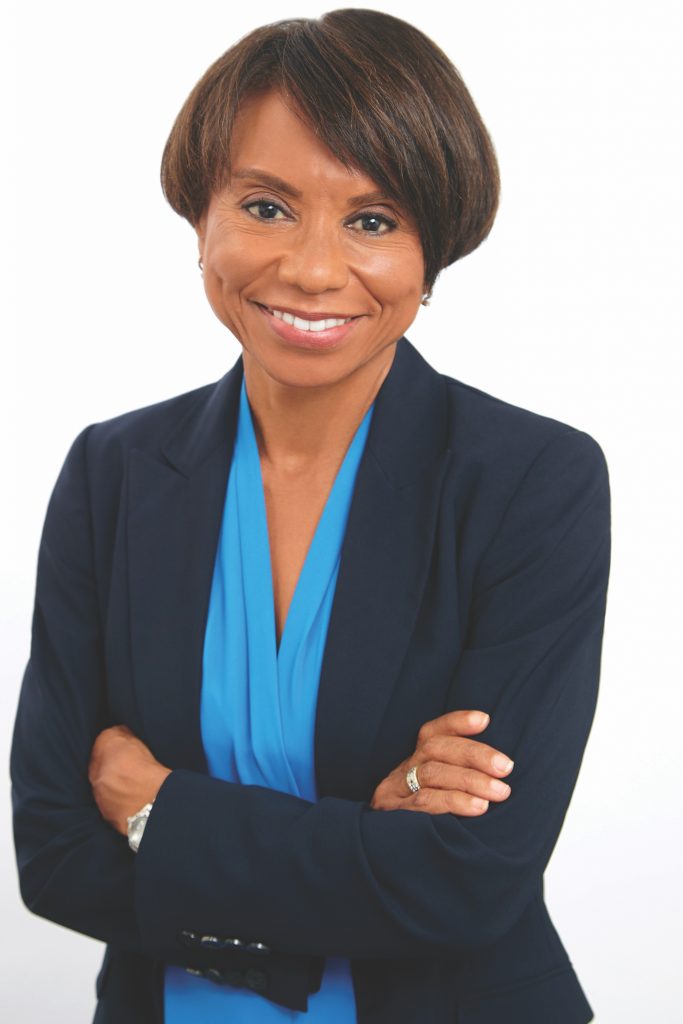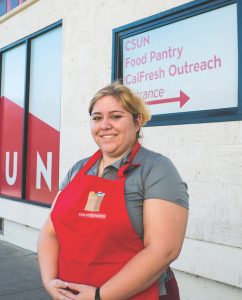Nurturing Agents of Change

Diana Ingram counts her blessings, big and small. And that has made her a blessing to countless others in Southern California and beyond who strive – against the odds – to reach their potential. Disadvantaged youth, financially at-risk students, job seekers with disabilities, women and people of color are among the beneficiaries of her leadership on nonprofit boards.
Even before she became a successful executive for the likes of IBM and Oracle, Ingram knew she had a responsibility to give back.
“No one succeeds alone,” says the native Angeleno, ever cheerful as she is humble. “Growing up, I was keenly aware of the love and sacrifice that enabled me to have opportunities.”
Ingram’s father, a Mississippi farmer who didn’t have the opportunity to go to college, worked at a Ford Motor Co. plant. Her mother grew up poor and, like many Southern Blacks, migrated west. Her parents met in Los Angeles, where they lifted themselves into the middle class. Her mother broke the first-generation college barrier in the 1950s, but was thwarted from pursuing her desired profession.
She wanted to major in engineering at UCLA, only to be told that “certain careers were not available to women of color,” Ingram says. Her mother studied math and French instead and later returned for a master’s in education. For 40 years, she taught public elementary school, setting a powerful example for Ingram and her siblings by her passion and compassion. She went to great lengths to inspire her underprivileged students – even making wake-up calls to kids whose working single mothers weren’t at home to get them up for school.
“Every human being has incredible value,” she would tell a young Ingram, adding that her students could one day be first-generation college graduates. “They may be that agent of change for their family. So, know that that [potential] exists in everyone and respect it.”
Those words grounded Ingram, who didn’t face the same crucible, and would influence her philanthropic priorities. At Stanford, she studied human biology, which blended natural and social sciences and forced her to consider issues from many perspectives. “It challenged you… and was good training for life,” she says. Like her mother, she immersed herself in a foreign language – Spanish, not French. Standing out as a Black woman while studying in Spain reinforced her empathy for “people who don’t conform.” She pursued an MBA at Northwestern’s Kellogg School of Management and entered the business world “partly because my mom didn’t get to do what she wanted to do.”
Women’s leadership was Ingram’s entrée into the nonprofit world. While managing Latin American operations for two IBM divisions from Miami, she was invited to join the International Women’s Forum, a global network of diverse high achievers dedicated to advancing women and equality. After moving back to L.A., Ingram served as president of IWF’s Southern California chapter, overseeing programs and annual charitable grants.
She dived deeper into community service. “There were so many interesting things to be involved in,” she says, wide eyed. “How did I ever work?”
Big Brothers Big Sisters of Greater Los Angeles, Los Angeles Urban League and Goodwill Southern California provided services to nurture potential and transform the lives of people of all ages in underprivileged and marginal communities. She was warmed by the glow of kids with their mentors and moved by Urban League and Goodwill programs promoting the dignity of work.
Goodwill typically invites to its board meetings someone who has participated in its career counseling, skills training or job placement programs. Ingram says it’s poignant proof of success and a refutation of perceptions that “people who don’t conform, who have a physical disability or different intellectual capacity aren’t whole. That they don’t want to be independent, that they can’t be independent.”
Ingram, who has been a board member since 2010, says Goodwill’s mission is similarly misunderstood. People know of Goodwill stores, but often don’t realize they are there to help fund the group’s core services. Goodwill’s services, and those of other nonprofits, are needed more than ever after the economic shock of the COVID pandemic.
“The enormity of the challenge is daunting,” she says. “It does concern me that when the problems seem so big, people are like, ‘Well, what can I do but take care of myself?’ versus, ‘Let me pick something and do something.’” Ingram’s advice: Pick something, do something! No matter how small.
From serving on the boards of UCLA Foundation and ECMC Group, a Minneapolis-based nonprofit that funds education, she knows that small sums can be the difference between finishing a degree or dropping out. The UCLA Foundation has given emergency grants for things like car repairs so a student can get to a part-time job needed to pay tuition or expenses.
“Interventions don’t necessarily require someone to write a $100,000 check,” Ingram says. “Sometimes we don’t think about how much potential we each have. Maybe it’s not writing a check. Maybe it’s giving of our time or talent that has an important impact.”
Ingram has given generous amounts of all three, though she self-deprecatingly says it’s “probably not enough.” She has enormous respect for leaders and staffers at organizations she supports, calling them angels who are motivated by their hearts, not wallets.
Over the decades, Ingram has stayed true to her mother’s example. Serving UCLA is a tribute to her. (Ingram’s two sisters are also alums.) And it’s an endorsement of UCLA’s push for first-generation college students – those agents of change invoked by her mother.
An optimist, Ingram sees steps forward elsewhere in her philanthropic work. “We’re making progress, but not fast enough,” she says. “At the same time, I have to believe we will make progress because we’ve seen the impact on individual lives, and that keeps me inspired.”
